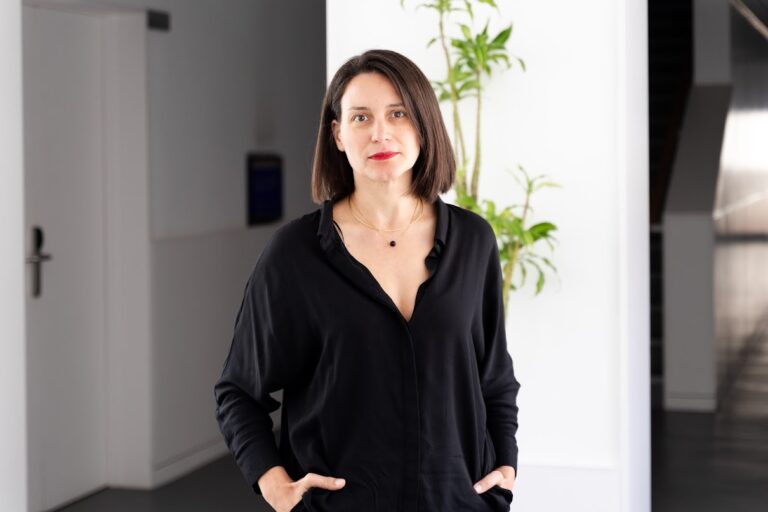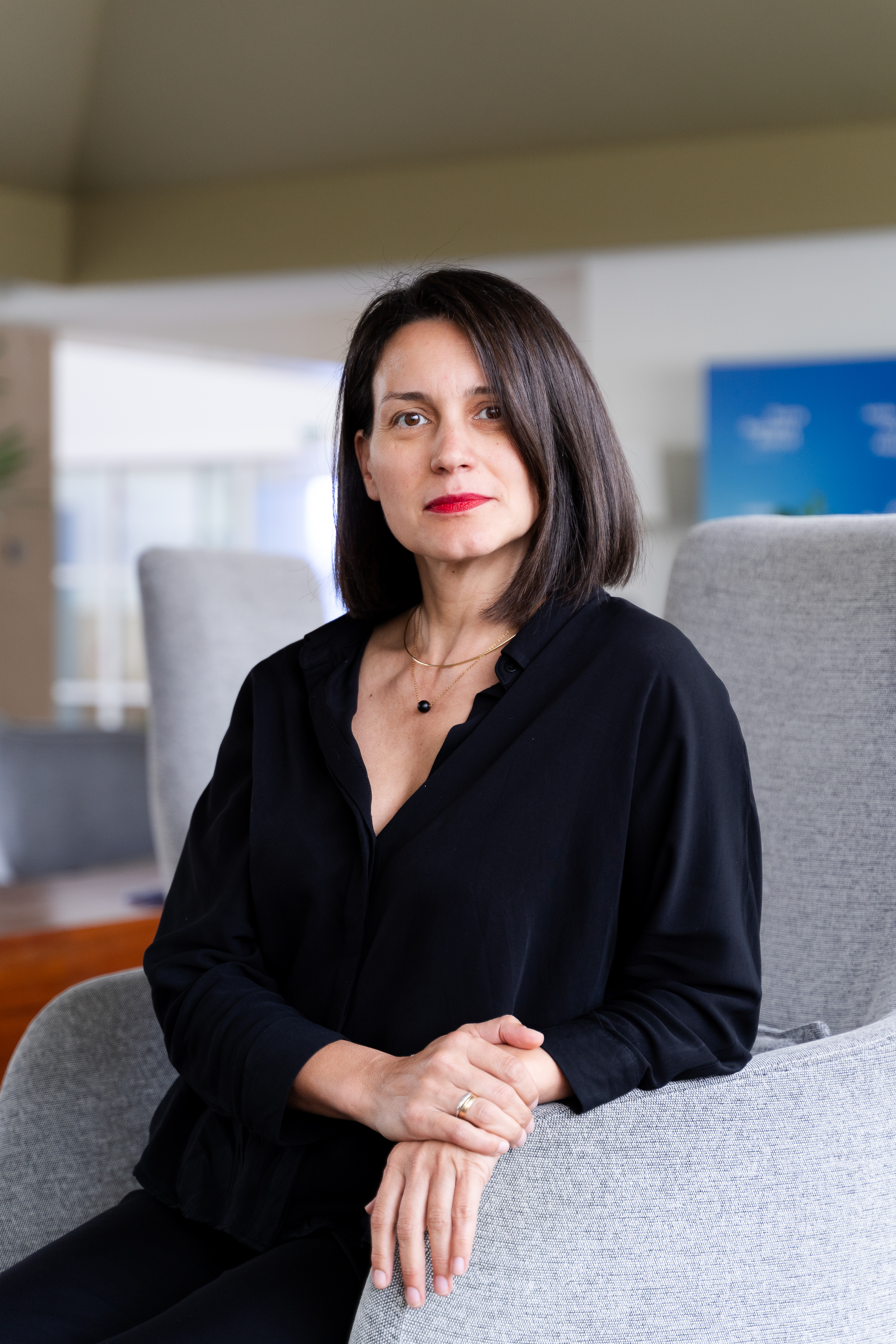This website uses cookies so that we can provide you with the best user experience possible. Cookie information is stored in your browser and performs functions such as recognising you when you return to our website and helping our team to understand which sections of the website you find most interesting and useful.

“Is a business degree worth it?” Most of us would not know the answer to this at 16 or 17 years old when we have to pick a course at university.
For Magda Seifert, the answer only came to her many years later. She had already pursued another degree and build a career in another field: architecture.

Portugal is home to an outstanding array of cultural and historical architecture. Source: AFP
Bridging the gap in the architectural community
Where we go, what we do, and who we hang out with — all of this define who we are.
The same goes for the actual places we find ourselves in. From our apartments to our streets, these are spaces we spend our entire lives in.
But have you ever considered just how much this collection of bricks and mortar affect humanity as s whole?
Seifert did. Architecture was all that to her and more.
To Seifert, architecture and culture are tools for social change, influencing how humans interacted with the world and each other. “Studying architecture was a starting point for exploring the connections between disciplines and their impact on practice,” she says.
Seifert pursued a degree in the field at the University School of Arts of Coimbra (ARCA).
At that time, she was mostly drawn to the poetic aspects of the discipline, such as designing concepts or exploring new ideas. She read books, travelled, and loved visiting exhibitions and learning about other cultural contexts.
One thing that stuck out to her was a prominent gap in the architectural community when it came to spaces that provoked critical discussion.
She carried that curiosity with her even after graduating.
While in practice, she expanded her professional scope and co-founded Circo de Ideias, a nonprofit cultural organisation committed to promoting the dissemination and study of architecture.
“Our work is focused on promoting architecture through publishing, events, and exhibitions,” says Seifert, who co-founded the company in 2008 alongside her colleagues Pedro Baía, Joana Couceiro, and Gonçalo Azevedo.
“We want to make architecture accessible to both academic and general audiences, and aside from publishing books that bridge research, theoretical discourses, and practice,” she adds. “Circo de Ideias also offers space for open dialogue and collaboration within the architectural community by hosting exhibitions, events, and talks.”

Seifert believes that in many industries, including architecture and design, women are often underrepresented in leadership roles and face barriers to advancement. Source: Magda Seifert
The reality of being an architect today
Circo de Ideias was not Seifert’s only professional venture.
She also joined ESAD Idea, the research centre from ESAD College of Art and Design, and is on the executive board of Porto Design Biennale, an event to foster debate and welcome concerns and multiple perspectives on design.
But holding multiple executive roles wasn’t easy.
As director of Porto Design Biennale, her tasks include overseeing the coordination of the event, articulating the curatorial teams, and coordinating the production of various events such as research activities, exhibitions, conferences, public installations, workshops, graphic materials, and editorial projects.
It wasn’t long before Seifert started to struggle in juggling these roles.
“I was somewhat naive about the actual realities of the profession because I didn’t fully know the complexity of working in an architecture office, dealing with legislation, managing client expectations, and dealing with the extensive time required to complete an architectural project,” she says. “My executive role at Porto Design Biennale was tough considering the scale of the event, managing multidisciplinary teams and the institutional responsibilities.”
She soon realised that she needed a broader understanding of business – particularly the project management side of things.
Determined to learn more, she pursued the International MBA at Porto Business School in Senhora da Hora, Portugal.

Is a business degree worth it? Seifert’s time at Porto Business School granted her valuable education, mentorship, and networking opportunities — so we think the answer speaks for itself. Source: Magda Seifert
Is a business degree worth it for non-business majors?
Having grown up in Portugal for most of her life, the International MBA was exactly what Seifert needed to gain fresh perspectives on her professional ventures. And to her delight, it was a wonderful educational experience.
“As someone from an architecture background, I needed to develop skills in managing teams, plan strategically, and make informed financial decisions,” she says. “I wanted to lead projects and organisations more effectively.”
What awaited her was a stimulating, collaborative programme.
By working alongside professors and colleagues from all walks of life, Seifert was exposed to diverse perspectives and business practices, all of which encouraged critical thinking and strategic problem-solving.
“The MBA helped me get important skills in leadership, finance, and operations, all of which were crucial for my work at ESAD Idea and beyond,” she says.
Creative work shines, especially when complemented by business knowledge, and Seifert’s time at Porto Business School is proof of that. Learning to approach problems from a systems-thinking perspective, getting acquainted with different frameworks, and considering the long-term impact and sustainability of creative projects were all useful knowledge.
“A cultural project also needs a balanced business judgement,” Seifert says. “It helps to reinforce the importance of clear communication and vision in guiding processes and projects – from small to big scale.”
Such practices come in handy in dealing with business challenges, such as securing funding for cultural projects. Seifert shared that patronage and philanthropy are still not standardised practices among companies in Portugal.
So, is a business degree worth it? Seifert would agree.
In fact, she strongly recommends those interested in taking on leadership roles to pursue an international MBA, just like the one at Porto Business School.
“The programme stands out for its exceptional content, experienced faculty teachers, and the incredible network of colleagues that it brings together every year,” she says. “It provided a strong base in management, combining practical, hands-on learning with real-world case studies.”
What’s next for the MBA graduate?
Seifert’s time at Porto Business School proved beneficial for her creative work. After completing her MBA in 2024, she has returned to her ventures, hoping to carry out big plans.
“For Circo de Ideias, we are looking to expand our publishing reach and continue some of the collections we started, like Houses with a Name, Architecture Lessons, Space Fictions – Booklets on Architecture and Cinema, among other publications,” she says. “We will be the publisher of the team who will represent Portugal at the Venice Architecture Biennale 2025.”
They are planning a series of events leading up to the next Porto Design Biennale that will take place in October 2025 as well. “For the Biennale, I am excited about the theme, which will make an actual shift to involving and interacting with local communities,” she says. “Our upcoming work will continue to focus on promoting design culture as an action and not only a discipline.”
So, no matter how often you ask Seifert – is a business degree worth it? She’d happily say yes.
“I hope to inspire others, particularly women, to pursue their goals and not be discouraged by systemic biases,” she says. “My advice would be to trust in your vision, stay focused, and find a network of people who support you. Resilience and perseverance are key, and always be open to learning.”











